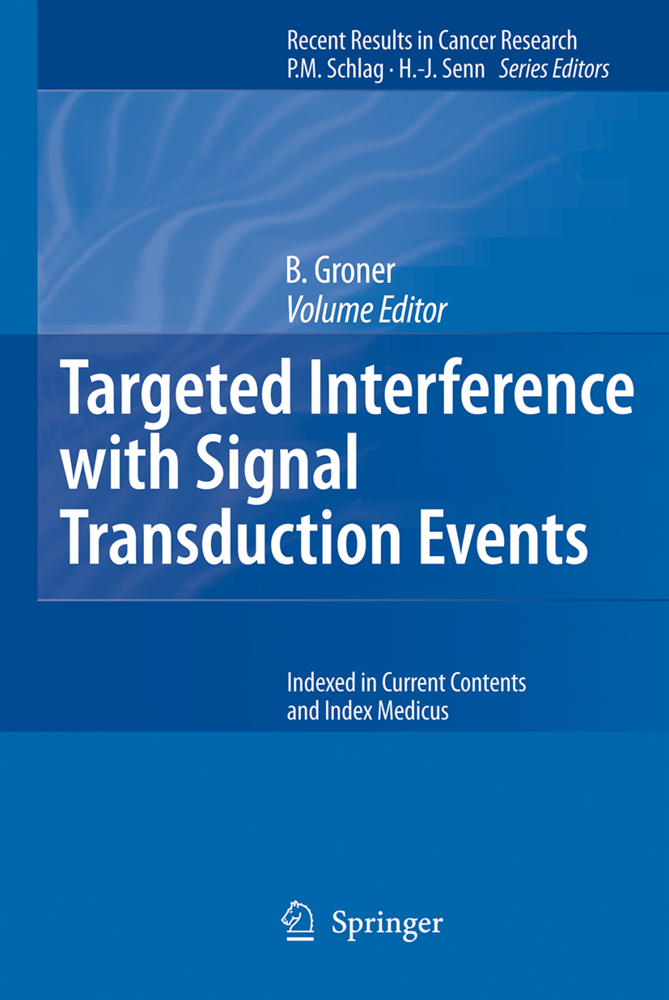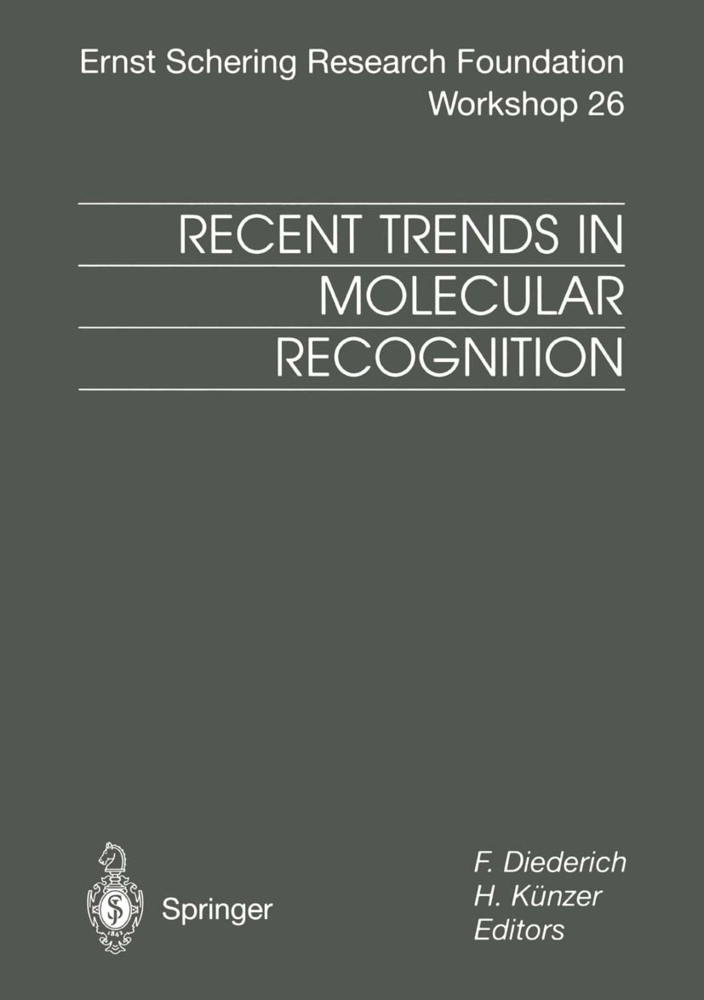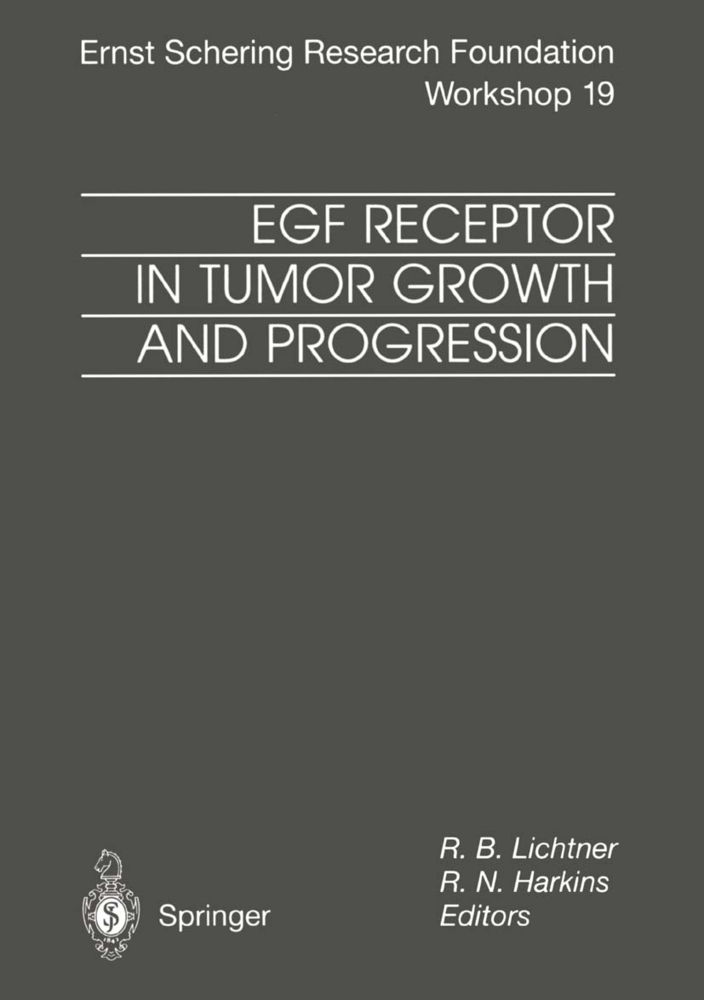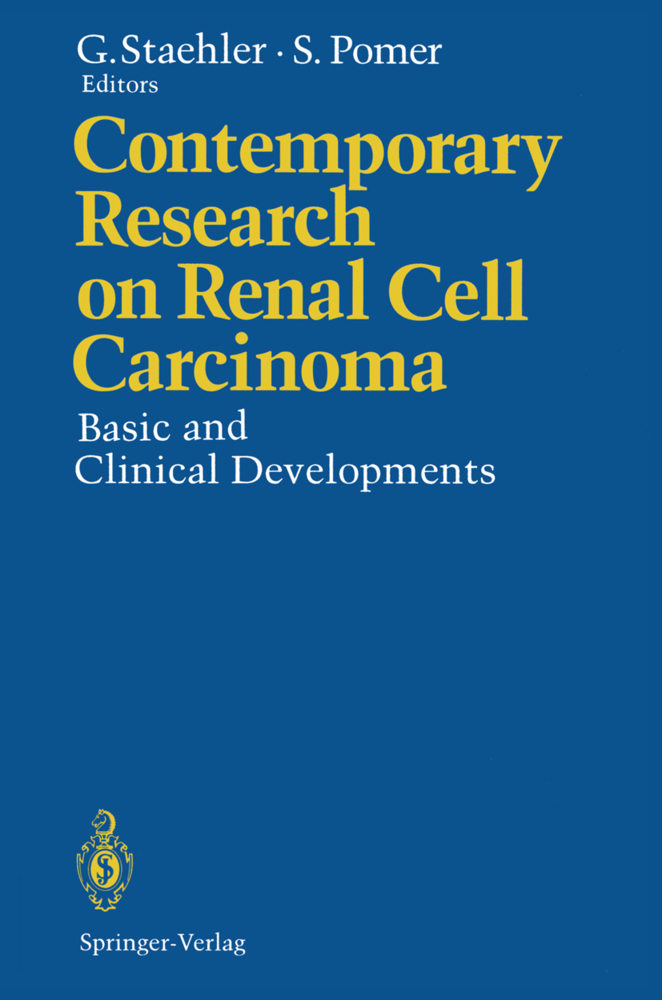Targeted Interference with Signal Transduction Events
Sequencing of the human genome and insights into signaling pathways have contributed to the understanding of cancer etiology and the development of new, improved cancer drugs. DNA mutations of a limited set of genes are responsible for the multiple stages of tumorigenesis and metastasis. Matching of therapeutic intervention with insights into the underlying molecular disease mechanism has led to the development of drugs such as Herceptin and Glivec. The deregulation of pathways due to mutated cancer genes provides the conceptual basis for future progress. Will it be possible to extrapolate this principle and derive more efficient drugs targeting cancer pathway components? Potential drug targets have been identified, but our ability to predict the consequences of inhibition of such components is still limited. The state of development of tomorrow's cancer drugs, directed against growth factors, growth factor receptors and intracellular signaling molecules with kinase activities, is described in this book.
Introduction: The Rationale for the Development of Targeted Drugs in Cancer Therapy
Identifying Critical Signaling Molecules for the Treatment of CancerTyrosine Kinase Inhibitors and Cancer Therapy
Targeting ERBB Receptors in Cancer
Inhibition of the IGF-I Receptor for Treatment of Cancer. Kinase Inhibitors and Monoclonal Antibodies as Alternative Approaches
Inhibition of the TGF-? Signaling Pathway in Tumor Cells
The Mammalian Target of Rapamycin Kinase and Tumor Growth Inhibition
The Ras Signalling Pathway as a Target in Cancer Therapy
The Mitogen-Activated Protein Kinase Pathway for Molecular-Targeted Cancer Treatment
Clinical Relevance of Targeted Interference with Src-Mediated Signal Transduction Events.
Groner, B.
| ISBN | 978-3-540-31208-6 |
|---|---|
| Artikelnummer | 9783540312086 |
| Medientyp | Buch |
| Copyrightjahr | 2007 |
| Verlag | Springer, Berlin |
| Umfang | IX, 188 Seiten |
| Abbildungen | IX, 188 p. |
| Sprache | Englisch |










